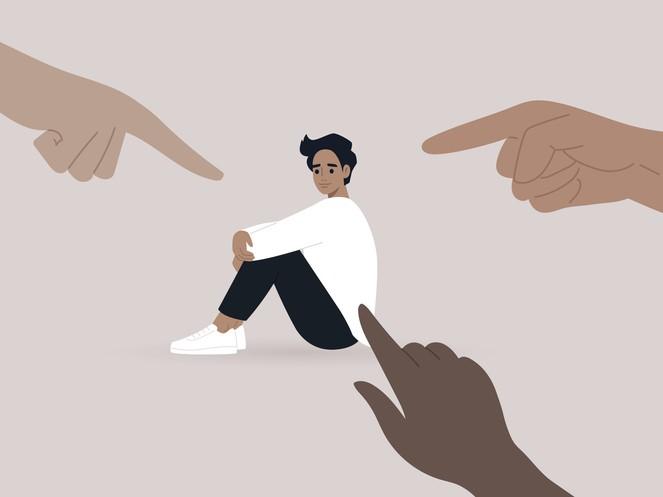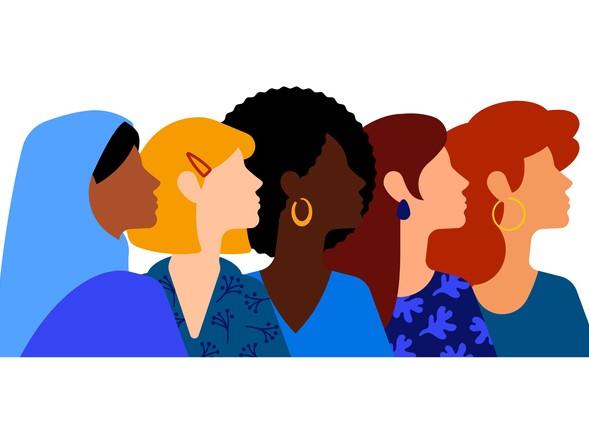
So you don’t think microaggressions have an impact?
In a recent article, organisation studies scholar Stella Nkomo asked why it was that despite decades of diversity research and practice, social inequalities still exist within organisations. Nkomo was writing in light of the racial and economic inequalities underscored by Covid, as well as the killing of George Floyd in the US. These events, and especially the renewed visibility of the Black Lives Matter movement globally, created a situation in which organisations across the board were rushing to institute race equality practices. But, as Nkomo notes, neither Covid nor the killing of George Floyd revealed anything new.
Yet governments, organisations and others constantly seem to be “caught by surprise” when things go wrong. This follows, as Nkomo writes, from an organisational inability and unwillingness to understand and confront inequality systemically, meaning it begins to spread like a virus. And this virus is resilient, with a strong capacity to survive.
One routine way in which the virus spreads is through microaggressions. The term “racial microaggressions” was coined in the 1970s by psychiatrist Chester M. Pierce to describe the subtle but brutal and humiliating ways in which black people are repeatedly put down by others – now understood to be an everyday experience for variously minoritised people.
- Do EDI kitemarks help protect female researchers from online abuse?
- The educator’s imperative: creating intentional inclusivity in the digital classroom
- Competing hierarchies of oppression: why is race a lower priority?
Take, for example, the case of Haben Girma, a human rights lawyer, disability justice advocate and the first deafblind person to graduate from Harvard Law School. In a recent Twitter post, she writes: “Today on an international show the host called me a smart cookie. The show was great, but that comment...Are grown men ever called smart cookies? Disabled people are often infantilised. Was this one of those moments or a cultural misunderstanding? I’m still processing...”
This is an example of how historical or cultural inequality manifests on a daily level. There is a tendency in society to approach disability through a deficit model – to view disabled people as somehow lacking in their physical, mental or emotional capacities and functions. This often results in the infantilisation of disabled people, as experienced by Girma in being called a “smart cookie”.
Another important aspect of Girma’s post is how the comment impacts her sense of self. She expresses, for instance, an uncertainty about how to interpret the comment. This is the classic case of a person being made to question themselves and whether they are misunderstanding things or being “overly sensitive”. Yet regardless of what the interviewer actually meant, Girma’s experience of infantilisation is undeniable.
Too often, microaggressions are shrugged off by perpetrators and bystanders because of a supposed lack of intent. It is crucial, therefore, to distinguish intent from impact.
I find it useful to think about the distinction between intent and impact through the analogy of driving a car. If one person bumps their car into another person or vehicle causing damage, it doesn’t matter whether the driver had any intention to cause it. Most would agree that, accident or not, the damage caused by their actions was undeniable.
So, while the interviewer may well have been trying to compliment Girma, the impact she experienced – as a disabled woman – was that of infantilisation. It matters little what the actual intent was, and given that Girma’s everyday experience is shaped by assumptions of deficit, the impact she experiences is no doubt of harm.
While her experience may appear to be at an interpersonal level only, it is actually the result of the normalisation/acceptance of disability as deficit. This is evidenced, too, in the structures and practices of organisations. For example, most of HE relies on a system of accommodations – the practice of offering adjustments or aids, on an individual and ad hoc basis, to facilitate access for disabled people. This system places the burden of forced intimacy on disabled people.
Forced intimacy, as disability rights activist Mia Mingus describes, is the demand that disabled people “strip down” and “share personal parts of [themselves]…to get safe, appropriate and good access”. This imperative to disclose need asks that disabled people should feel immediate trust and intimacy in sharing themselves with another who is responsible for managing access.
The notion of forced intimacy helps reveal how structural inequality operates. First, insofar as this imperative is not imposed upon non-disabled people, it is by definition unequal and exclusionary. Second, because this inequality is entrenched in the routine practices and policies of organisations, it perpetuates a culture where ignorance and misapprehensions about minoritised people, and the microaggressions motivated by those misapprehensions, are normalised.
To be clear, this circumstance is not limited to disabled people and encompasses the experiences of variously minoritised people. Too often, organisations respond to what are fundamentally structural and cultural issues through the development of EDI policy and, more problematically, through attempts to train away “unconscious bias”.
What is needed instead is literacy – not (only) in terms of knowing and speaking the right language, but as active study of how historically and socially instituted norms exist in organisations to produce discriminatory practice. In short, neither policy nor training can address what is fundamentally a historical and structural effect.
The required shift, however, will become possible only when organisations recognise the inevitability of a culture of microaggressions within them. The lack of evidence is frequently understood as indicating the absence of a problem. It is important to recognise, however, that such absence stems from a shortage of confidence among minoritised people in their ability to offer redress, let alone reparation.
Developing organisational competence and trust around these issues is hard work. And if an organisation’s stated commitment to EDI is to mean anything, they may well ask themselves what they are willing to give up to undertake this work.
rashné limki is lecturer in work and organisation studies and director of EDI at the University of Edinburgh Business School. She has also worked as a facilitator and mediator for community and activist organisations.




